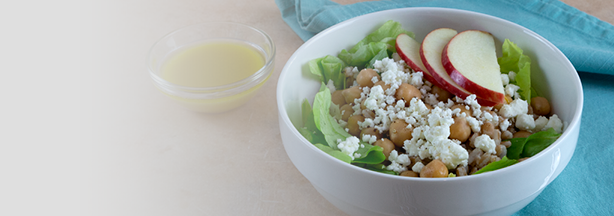High Potassium? Investigate the Cause When You Have Kidney Disease
Provided by DaVita® Dietitians
Potassium is a mineral needed to keep nerves and muscles working properly. The heart is a very important muscle, so too much potassium in the bloods may cause irregular heartbeats or cause the heart to stop. When you have chronic kidney disease (CKD) and are on dialysis, the amount of potassium in your diet is regulated because damaged kidneys cannot remove potassium like healthy kidneys. If you find that your potassium level is too high, it’s time to investigate the problem.
Healthy potassium levels
Knowing potassium levels is the first step to investigating the cause of high potassium.
- Less than 3.5 mg/dL is low
- Between 3.5 to 5.5 mg/dL is safe
- 5.6 to 6.0 mg/dL is high and unsafe
- 6.0 mg/dL is very high and very dangerous
Usual suspects: High-potassium foods
If potassium levels are higher than 5.5 mg/dL, your inner Sherlock Holmes should come out to uncover the cause. One culprit is consuming foods that are high in potassium. By limiting or avoiding the foods below, it is likely you can move your potassium levels into a healthy range.
- All-bran or other bran cereal
- Baked potatoes, sweet potatoes or potatoes that have not been “leached” or soaked for 3 to 4 hours, or treated by the double-cook method
- Dairy products such as ice cream, pudding, milk, soy milk and yogurt (more than 1⁄2 cup a day)
- Dried beans, dried peas, nuts or seeds, or peanut butter
- Dried fruits such as apricots, dates, figs, prunes and raisins
- Fresh fruit such as avocado, bananas, cantaloupe, kiwi, mango, nectarines, oranges and papaya
- Large servings of the allowed fruits and vegetables
- Orange juice, prune juice, tomato or V-8® juice
- Salt-free or “lower salt” foods that have potassium added
- Salt substitutes that contain potassium chloride
- Sodium-free baking powder
- Sweets such as black licorice candy, chocolate or molasses
- Vegetables such as artichokes, large amounts of mushrooms, pumpkin, spinach, tomatoes and winter squash
Chewing tobacco or snuff is not necessarily a food, but using these products can also cause potassium levels to spike.
Put high potassium behind bars
Potassium keeps the heart healthy, keeps electrolytes and the acid/base content of blood in balance, promotes muscle growth, and sustains healthy brain function. But too much of this mineral can be bad for people with CKD and those on dialysis, so keeping potassium levels in check is necessary.
Consulting a renal dietitian to design a delicious, kidney-friendly diet is a great way to take control of potassium. Keeping all scheduled dialysis treatments is a must. Missing a single treatment can lead to unsafe potassium levels. Lastly, following the doctor’s advice can lead to a happy, productive life.
Related articles on DaVita.com

Download
Cookbooks

Eating Out
Guides
See kidney-friendly food and drink choices to consider when eating out at your favorite restaurants. Choose from 12 cuisine types.
